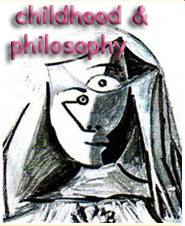parallel convergences: thinking with biesta about philosophy and education
DOI:
https://doi.org/10.12957/childphilo.2017.29953Keywords:
sumphilosophein, comunidade, comunidade de investigação filosófica, aprendização, filosofia e educaçãoAbstract
In this paper the question of the kind of dialogue that is possible between P4wC and Gert Biesta’s educational thinking is explored. The assumption – based also upon a reflection about the style of argumentation of Biesta when he addresses P4wC – is that a dialogue is possible, despite the misgivings that he manifests about how P4wC could end up merely turning into a broadened form of education for critical thinking. In order to investigate how this dialogue could look like, this response engages with what can represent a major bone of contention, namely the intimate bond between philosophy and education, which is pivotal in the P4wC project and which, instead, Biesta seems to problematise, spotting in it the perpetuation of a kind of “mentalisation” plaguing much of the Western educational and philosophical tradition. After construing this radical challenge as a Levinasian move, the paper endeavours to show how P4wC can be taught by it. In particular, it is argued that Biesta’s concerns can help us to rediscover a specific view of what philosophising-together as sumphilosophein (to adopt an Aristotelian notion) may mean and to look at the community of philosophical inquiry as the site of the ‘polemic commonality of philosophy and education.’ While recognizing the points of contact and (possible) encounter with Biesta’s ideas, the paper excludes any ‘fusion of horizons’ and proposes, instead, two other metaphors to capture the kind of dialogue which can go on.Downloads
Published
2017-09-08
How to Cite
oliverio, stefano. (2017). parallel convergences: thinking with biesta about philosophy and education. Childhood & Philosophy, 13(28), 589–603. https://doi.org/10.12957/childphilo.2017.29953
Issue
Section
dossier




